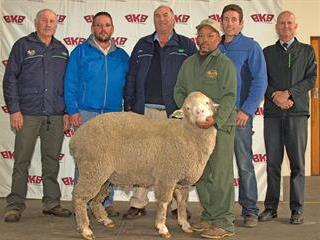Food is still getting more expensive, with the prices of products such as peanut butter having increased by 20,5%, spaghetti by 53% and margarine by 50% since July 2007 to July 2008. Sunflower oil is up 99% up, dairy products up 18%, meat 14% and vegetables have increased by 16% over the same period.
This is according to the August 2008 National Agricultural Marketing Council (NAMC) report. But although food inflation is still increasing, the increments are getting smaller. means that the percentage that food prices contribute towards general inflation is starting to level off, said NAMC agricultural economist André Jooste. This is illustrated by the maize flour price, which had increased year on year by between 20% and 30% at the beginning of the year, but was now declining, Jooste said. M eanwhile rural areas have been the hardest hit.
The price of maize flour decreased by 3% year on year for urban areas, but increased by 14% in rural areas, Jooste explained. is because products such as maize, wheat and sunflower seeds are first transported to urban areas for processing and then transported back to rural areas. inflates the eventual price of a loaf of bread by 36% because of distribution costs, explained Jooste. Grants and school feeding schemes were helping rural communities in the short term, but longer term solutions need to be implemented in a structured manner. “Food gardens and small-scale farming as a means of self-sufficiency are good ideas, but you cannot simply give someone a bag of seeds and expect the rural food problem to be solved,” stressed Jooste.
He added, however, that just because someone is a small-scale subsistence farmer, it’s no excuse for being unproductive. “Therefore, it’s essential that seeds, fertilisers and pest and disease control are supplied and good agricultural practices such as rotation programmes are implemented. Government has a huge role to play in this regard.” aize production for this year is up by 5 million tons from last year. This has resulted in maize being traded at export parity and the subsequent reduction in the price of maize flour can now be seen. But wheat is under-produced and is traded at import parity as a result. This has caused the price of brown bread to increase by 40%, Jooste said. – Wouter Kriel
Shocking reports on illiterate councillors
Media reports about illiterate municipal council members have led to renewed distrust in the service delivery of municipalities. T his comes shortly after the shelving of the controversial Expropriation Bill, which would have given municipalities the power to seize property from farmers, companies and ordinary people. A 2006 study by the South African Local Government Association (SALGA) reportedly shows that one out of three councillors is illiterate, while 32% of the councillors who took part in the study indicated that they lacked basic reading and writing skills.
The study also showed that 28% of the councillors did not have a matric qualification and that 5% never went beyond primary school. Only 4% of councillors had an honours degree or higher. According to media reports Dr Sifiso Mbatha, head of skills development at SALGA, said illiterate councillors don’t understand local government issues and they keep quiet because they are embarrassed. Dr Mbatha also admitted the illiteracy levels contribute to poor service delivery at municipalities. S hortly after these reports, SALGA hit back in a statement saying there was no direct relationship between councillors’ lack of academic skills and service delivery. “Political leadership can’t only be exercised by those who possess formal academic training,” the statement read.
The Department of Provincial and Local Government also responded, saying great progress had been made since the study. According to spokesperson Luzuko Koti most of the councillors elected in 2006 were starting their first terms of office, which made education and skills development necessary. Koti also said the percentage of councillors who had indicated that they needed reading and writing skills had decreased substantially since then. “The councillors gained a lot of experience and underwent training in the last two years and are generally very active in their communities,” he said. – Drieka Burger
Farmers can now sell milk on the internet
The Milk Producers Organisation (MPO), in a joint venture with MPOSA Holdings (PTY) Ltd and Olmex (Ltd, have launched the first internet-based dairy-trading platform in South Africa. The online milk exchange went live on 1 September 2008. he MPO explained that the platform enables the simultaneous marketing of milk to multiple traders, allowing them to compete on price. Contracts are compiled online and then e-mailed to the relevant traders. Buyers and producers are able to trade every last Thursday of the month.
There is a 2% transaction cost on the total – 1% from the buyer and 1% from the producer. he will be monitoring the trade on the exchange and it’s hoped that information can be obtained to provide greater insight into the state of milk production. he organisation said that the ideal is to establish a stable and progressive milk market and this is exactly what the exchange encourages.
It introduces more farmers to more buyers without diluting the negotiating power of either party. In fact, the milk exchange gives players a greater choice, which will steer supply and demand in the market. he transparency of the process will also prevent price fixing. The internet-based inter-trade system is available to anyone with access to a computer and internet connection. – Rudi Massyn









